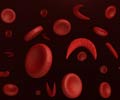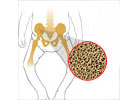Though vitamin B12 is usually obtained from animal sources, vegetarians also have several options to obtain this vitamin in the diet.

Vitamin B12 deficiency is detected by testing the blood for vitamin B12 levels. This test is usually done in individuals suffering from megaloblastic anemia or dementia and other nervous system problems.
Some amount of vitamin B12 is synthesized by the bacteria in the intestines. Vitamin B12 in the diet is mainly obtained from animal sources. Thus, non-vegetarians usually do not suffer from vitamin B12 deficiency unless they have some other additional problems. However, with more and more people choosing to become vegetarians, it has become important to emphasize on the vegetarian sources of vitamin B12. Milk and certain dried algae are known to contain the vitamin. The problem could be more acute in vegans, who will require vitamin B12 as tablets or in fortified foods to meet their requirement.
The presence of certain inactive corrinoid compounds could affect the availability and activity of vitamin B12 in the body, thus resulting in a deficiency state despite adequate intake. In addition, tablets containing certain bacteria like Spirulina, Aphanizomenon, and Nostoc could also affect the activity of B12 in foods. Though Spirulina and the other supplements are high in B12 content, some researchers feel that this form of B12, which they refer to as pseudo-B12, may not be biologically active in humans, and in fact may reduce the effect of B12.
The cooking method could also affect the vitamin B12 content of the food. Researchers suggest that cooking at high temperatures and for long periods could reduce the vitamin B12 content of fish. They also suggest that vitamin B12 is lost even when food is microwaved. Vitamin B12 in tablets also undergoes degradation if they contain high amounts of vitamin C and copper.
Some of the foods suggested by the researchers as high in vitamin B12 content are:
• Two species of edible algae - dried purple and green lavers
• Vegetables enriched in vitamin B12 during the cultivation process
• Fortified B12-containing foods like ready-to-eat cereals
Thus, vitamin B12 deficiency can be carefully avoided in vegetarians through careful planning of their diet.
Reference:
1. Biologically Active Vitamin B12 Compounds in Foods for Preventing Deficiency among Vegetarians and Elderly Subjects; Fumio Watanabe et al; J. Agric. Food Chem., 2013, 61 (28), pp 6769–6775 DOI: 10.1021/jf401545z
Source-Medindia















